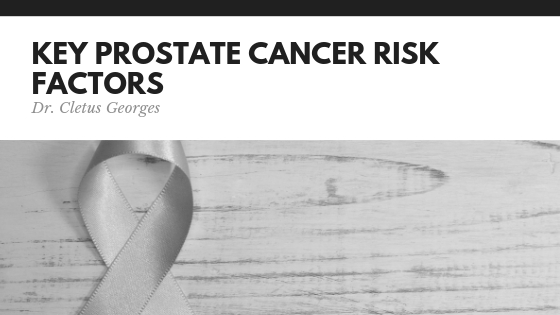Dr. Cletus Georges Explores Key Prostate Cancer Risk Factors
From age to family history, it’s vital that prostate cancer risk factors are fully understood, particularly among men aged over 50. That’s according to Cletus Roy Georges, MD, a specialist physician focused on urology and based in Orlando, Florida as he shares a professional insight into key risk factors associated with cancer of the prostate.
“All men,” says Dr. Cletus Georges, “are at some risk for prostate cancer.”
In fact, for every 100 American men, approximately 13 will be diagnosed with prostate cancer during their lifetime, according to recent studies. “Of those dozen-or-so men, two or three are currently likely to lose their lives as a result of the disease,” adds Dr. Georges, “which is why it’s so important that we fully understand and appreciate the risk factors involved with prostate cancer.”
While age and a family history of prostate cancer are among the biggest risk factors and cannot be changed, other less-well-understood factors, such as diet and smoking, can, says Dr. Georges, be more easily addressed. “Quitting smoking, for example, is advised in any instance, but it’s especially important in helping to prevent against not just prostate cancer, but many other cancers, too,” he adds.
Currently, around six in ten cases of prostate cancer occur in men aged over 65. While the disease is rare in those under 40, chances of developing prostate cancer rise significantly after age 50, according to Dr. Georges.
Of family history, Dr. Georges explains that having a father or brother diagnosed with prostate cancer more than doubles a man’s risk of also developing the disease. “In such instances, it’s vital to seek regular prostate cancer screening,” he goes on to suggest.
Other factors, alongside diet and smoking, with less clearly defined effects on prostate cancer risk are believed to include obesity, chemical exposure, sexually transmitted infections, vasectomy, and inflammation of the prostate.
“If there’s any doubt, or a patient has any concerns surrounding prostate cancer and its risks, they should seek advice from their regular primary care physician or a urology specialist at their earliest convenience,” adds Dr. Georges, wrapping up.
Cletus Roy Georges, MD graduated from Andrews University in Berrien Springs, Michigan with a bachelor’s degree in zoology with a biomedical option in 1987. Georges subsequently attended Weill Cornell University Medical College in New York City, graduating in 1991 and completing his residency in urology at Chicago’s Northwestern University McGaw Medical Center in 1997. Shortly thereafter, Dr. Georges started his practice in Sebring, Florida before relocating to Orlando, where he remains settled today.


